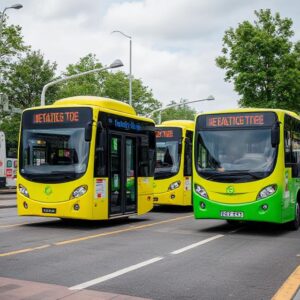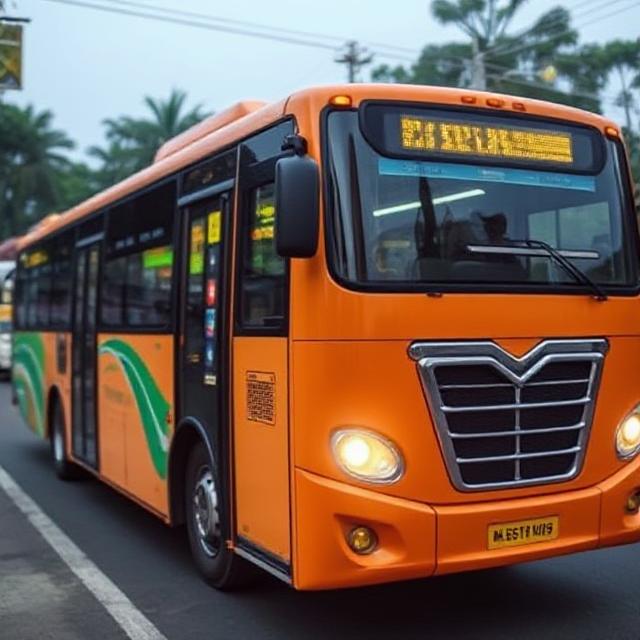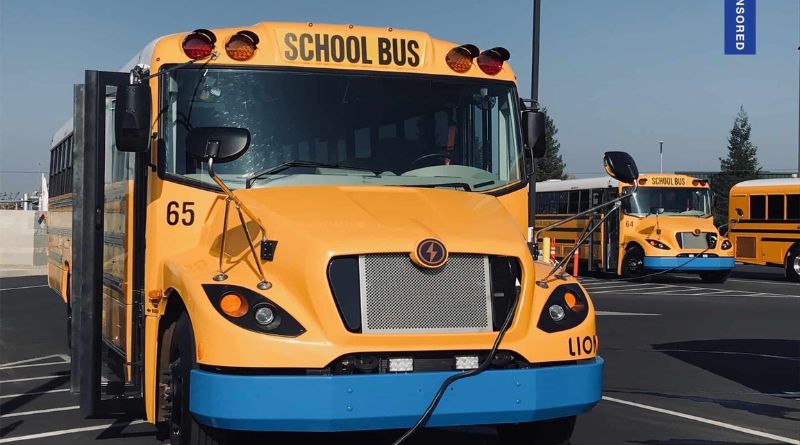India, a country with over 1.4 billion people, faces immense challenges in public transportation. Increasing pollution levels, rising fuel prices, and the pressure to reduce carbon emissions are pushing the country toward greener mobility solutions. Among these, electric buses in India have emerged as a powerful force in transforming urban and intercity travel. With government support, technological advancements, and rising public awareness, the future of electric buses in India looks brighter than ever.
The Future of Electric Buses in India: Trends to Watch
India’s electric vehicle (EV) ecosystem has seen rapid development in the past decade. From a few experimental trials in 2015 to large-scale adoption by state transport corporations, the growth of electric buses in India is driven by strong policy initiatives and private sector participation.
Some promising trends include:
- State Government Initiatives: States like Delhi, Maharashtra, Gujarat, and Tamil Nadu are deploying hundreds of electric buses with plans to expand their fleets significantly.
- FAME II Scheme: The Faster Adoption and Manufacturing of Hybrid and Electric Vehicles (FAME) initiative provides subsidies for electric bus procurement.
- Private Partnerships: Startups and large automakers are entering the market to supply electric buses and build infrastructure.
- Localized Manufacturing: Companies such as Tata Motors, Ashok Leyland, and Olectra Greentech are producing electric buses in India, reducing dependency on imports.
The future of electric buses in India will also rely on innovations like battery swapping, solar-powered charging stations, and smart fleet management.
10 Benefits of Switching to Electric Buses in India
There are numerous benefits of electric buses for both the environment and commuters:
- Zero Emissions: Electric buses produce no tailpipe emissions, reducing air pollution in urban areas.
- Lower Operating Costs: Electricity is cheaper than diesel, and electric motors require less maintenance.
- Noise Reduction: Electric buses operate almost silently, reducing noise pollution.
- Energy Efficiency: Electric drivetrains are more efficient than internal combustion engines.
- Government Subsidies: Financial incentives under FAME II and state policies lower the upfront costs.
- Long-Term Cost Savings: Though the initial investment is high, electric buses have a lower total cost of ownership.
- Job Creation: New jobs are emerging in EV manufacturing, maintenance, and infrastructure.
- Passenger Comfort: Smooth acceleration, air conditioning, and minimal vibrations offer a better electric bus travel experience.
- Smart Integration: GPS, CCTV, and digital ticketing systems can be integrated easily.
- Climate Goals: Helps India meet its Paris Agreement targets by cutting greenhouse gas emissions.
How Much Do Electric Buses Cost in India?
A common question among transport operators is the electric bus cost in India. Prices vary depending on the model, battery capacity, and range. As of 2025:
- Standard 9-meter buses: ₹80–90 lakh
- 12-meter buses with longer range: ₹1–1.2 crore
- Mini electric buses: ₹50–60 lakh
Though the cost may seem high, it’s important to consider that electric buses offer fuel and maintenance savings over their 10–12 year lifespan. With FAME II subsidies and concessional GST rates, the effective cost is even lower.

Electric Buses
The Growing Network of Electric Bus Charging Stations in India
A crucial factor in the adoption of electric buses is the availability of electric bus charging stations. India is rapidly expanding its charging infrastructure:
- Public Charging Infrastructure: Major cities now have charging hubs at bus depots and terminals.
- Battery Swapping Stations: Being tested in high-frequency routes for faster turnaround.
- Private Sector Involvement: Companies like Tata Power, Fortum, and Adani are investing in charging infrastructure.
- Smart Grid Integration: Renewable energy and AI-driven load balancing make charging more sustainable.
The development of a reliable, scalable network of electric bus charging stations will be key to sustaining the future of electric buses in India.
Electric Buses vs Diesel Buses: Which One is Better for India?
Let’s break down the debate between electric buses vs diesel buses:
| Parameter | Electric Buses | Diesel Buses |
| Emissions | Zero | High |
| Fuel Cost | Low (₹1.5/km) | High (₹7–10/km) |
| Maintenance | Low (fewer moving parts) | High |
| Noise | Silent | Noisy |
| Initial Cost | High | Moderate |
| Operating Lifespan | 10–12 years | 8–10 years |
While diesel buses have a lower upfront cost, electric buses prove more economical over time and align with India’s environmental goals. In the long run, electric buses in India will replace diesel buses as the preferred public transport solution.
What to Expect: Riding an Electric Bus in India
The electric bus travel experience is drastically different from a conventional bus ride:
- Comfortable Interiors: Air conditioning, ergonomic seating, and better suspension.
- Smooth Ride: No jerky gear shifts or vibrations.
- Noise-Free Travel: Ideal for intra-city commutes.
- Real-Time Tracking: GPS and mobile apps enable commuters to track routes and arrival times.
- Eco-Friendly Ambiance: Knowing your commute is helping the planet adds to the experience.
Many first-time passengers express surprise at how advanced and relaxing the experience is compared to traditional buses.
What Users Are Saying: Electric Bus Reviews from Across India
Let’s take a look at electric bus user reviews collected from cities like Mumbai, Delhi, Hyderabad, and Bengaluru:
- Ritika Sharma, Delhi: “I take the electric bus to my office daily. It’s so quiet and comfortable—I actually look forward to my commute!”
- Arun Patil, Pune: “Initially skeptical, but I was impressed with the smooth ride. No smoke, no noise. Great initiative.”
- Jaspreet Singh, Chandigarh: “The buses are clean and modern. I appreciate the on-time service and real-time app tracking.”
Overall, user feedback has been overwhelmingly positive. The high satisfaction rate among commuters signals strong public acceptance of electric buses in India.
Conclusion: A Sustainable Road Ahead
The push toward electrifying public transport is not just a policy directive—it’s a necessity. With worsening air quality in cities and rising fuel imports, India must adopt clean mobility solutions. Electric buses offer a practical, scalable, and environmentally responsible path forward. The future of electric buses in India depends on continued policy support, infrastructure development, and public adoption. With the increasing deployment of electric bus charging stations, falling battery costs, and positive electric bus user reviews, it’s clear that electric buses are not just a trend—they are the future of Indian transport.










Leave a Reply